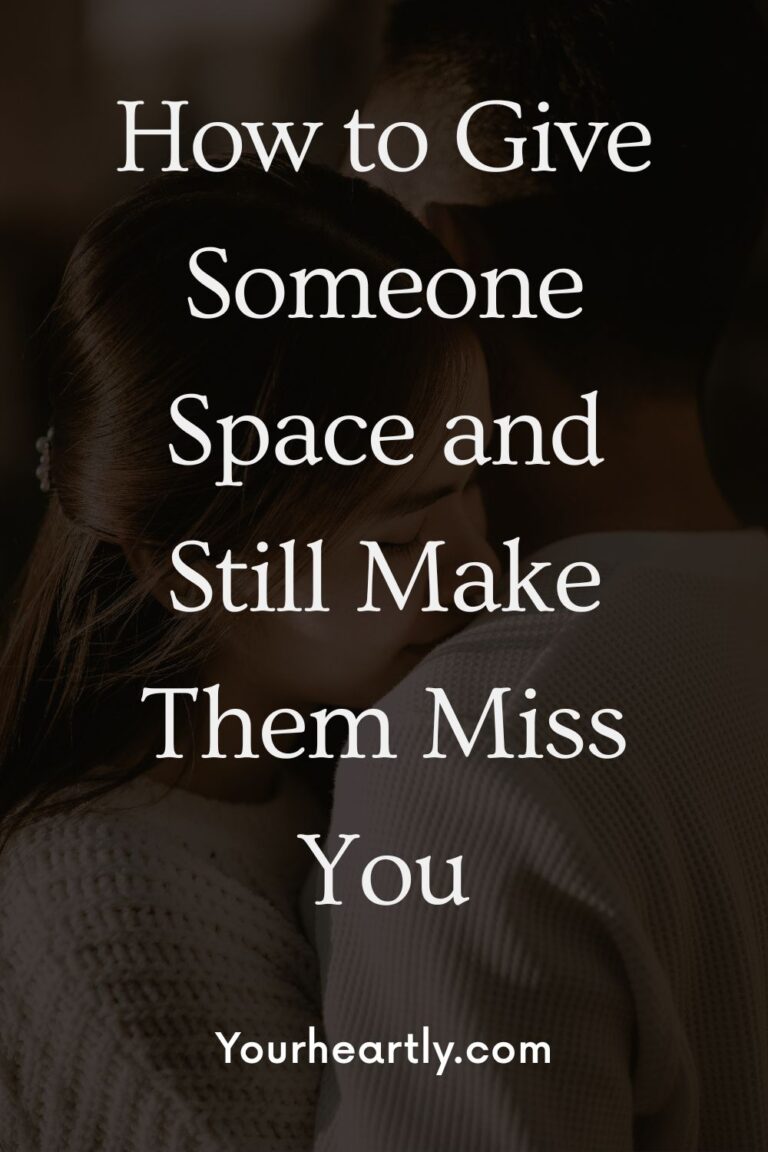Marriage is often painted as a picture of happiness, companionship, and lifelong support. But the reality is that not every relationship feels fulfilling, and sometimes, what’s left unsaid says more than words ever could. If you’ve ever found yourself questioning whether you’re truly happy in your marriage, you’re not alone. Many women go through seasons where their emotional needs aren’t being met, their efforts go unnoticed, or the spark that once felt alive begins to fade.
You may find yourself pouring energy into things that don’t directly heal the relationship but instead serve as distractions from the pain. Maybe you spend hours scrolling on your phone, bury yourself in work, or obsess over keeping the house spotless—none of which necessarily make you feel better. These habits often mask deeper frustrations, disappointments, or loneliness within a marriage.
Understanding these patterns is the first step toward clarity. If you can identify the behaviors that signal unhappiness, you’ll be better equipped to decide what changes you need—whether that means opening up more communication with your spouse, seeking counseling, or simply acknowledging your feelings.

This article explores six common things women spend time on when they’re unhappy in their marriages. If these ring true for you, take them as gentle signs that your heart may be asking for more connection, care, and fulfillment. The goal isn’t to shame you but to help you reflect honestly on where you stand in your relationship—and what you might want to do next.
1. Over-Focusing on Work
When a marriage feels unfulfilling, it’s easy to throw yourself into your career. Work provides structure, recognition, and often, a sense of accomplishment that you may not be getting at home. If you notice yourself staying late at the office, volunteering for extra projects, or constantly checking emails even during family time, it may not just be about ambition—it may be a way to avoid dealing with the emptiness you feel in your marriage.
Work becomes a safe place where your contributions are acknowledged. You get promotions, appreciation, or financial rewards—things that stand in stark contrast to the lack of emotional validation you might be experiencing at home. Instead of talking about your frustrations with your spouse, you immerse yourself in tasks that give you immediate satisfaction.
On the surface, this can seem productive, but over time, it can create distance. You’re spending more time with colleagues than with your partner, and your emotional energy is being drained elsewhere. This imbalance can worsen the issues in your marriage because the space for intimacy and connection continues to shrink.
If you see yourself in this, ask whether you’re working late out of passion or out of avoidance. Reclaiming balance starts with honest conversations, even if they feel uncomfortable.
2. Obsessing Over Household Perfection
A spotless home can sometimes serve as more than just a reflection of cleanliness—it becomes a coping mechanism. When your marriage feels chaotic or emotionally messy, you might turn to scrubbing floors, reorganizing shelves, or redecorating as a way to regain a sense of control.
Perfection in the home gives a temporary sense of order that your relationship may be lacking. You may find yourself irritated when things are out of place, feeling the need to constantly clean because it distracts you from thinking about deeper issues. Friends and family may admire your beautifully kept home, but inside, it’s covering up an ache for stability in your marriage.
This kind of busyness can become exhausting. Instead of resting or connecting with your partner, you’re pouring your time and energy into the house. It may feel like you’re keeping up appearances, but in reality, you’re using it as a shield against confronting emotional distance.
A tidy home can absolutely be comforting, but when it becomes the center of your attention, it’s worth asking yourself: am I cleaning to feel calm, or am I cleaning to avoid the discomfort in my relationship?
3. Scrolling Through Social Media for Hours
If you find yourself losing track of time while scrolling, liking, and comparing your life to others online, it may be more than just a casual habit. For many women, social media becomes an escape from reality when their marriage feels unsatisfying.
Endless scrolling provides distraction and even validation. Seeing likes, comments, or compliments online can fill a void left by a lack of attention from your partner. At the same time, comparing your relationship to seemingly “perfect” couples on your feed can deepen your dissatisfaction and frustration.
This digital refuge often pulls you away from real-life connections. Hours spent online could have been opportunities to engage with your spouse, yet the screen feels safer because it doesn’t force you to confront what’s missing in your marriage.
The truth is, social media rarely heals loneliness—it amplifies it. If you notice you’re spending more time interacting with strangers than with your partner, it’s a sign to reflect. Ask yourself whether you’re genuinely enjoying the time online or if you’re using it to escape the reality of your relationship.
4. Prioritizing Friendships Over Your Partner
Friendships are an essential part of life, but when you consistently choose your friends over your spouse, it may signal dissatisfaction in your marriage. Spending all your free time going out with girlfriends, planning trips, or confiding in them about every detail of your life can mean you’re subconsciously replacing the emotional connection missing from your marriage.
Friends provide laughter, understanding, and comfort. They validate your feelings in ways your partner may not, and they give you the sense of belonging you crave. However, if these bonds are serving as a substitute for intimacy at home, the gap between you and your spouse can continue to grow wider.
It’s easy to feel justified in spending more time with friends, especially when you feel your spouse isn’t meeting your emotional needs. But when your marriage takes a back seat to other relationships, it prevents the possibility of rebuilding connection with your partner.
Healthy friendships add joy to your life, but they shouldn’t be your main source of emotional fulfillment if you’re married. If you recognize yourself in this pattern, it may be time to ask what’s pulling you away from your spouse—and whether you’re ready to address it openly.
5. Immersing Yourself in Hobbies to Escape
Hobbies are healthy and often necessary outlets, but when you spend hours upon hours lost in them, it can signal something deeper. Whether it’s crafting, reading, gaming, or fitness, the activity itself isn’t the problem—it’s the way it becomes an escape from facing issues in your marriage.
You may feel more alive during your hobbies than you do with your partner. They offer a sense of fulfillment, creativity, or accomplishment that your relationship no longer provides. Over time, this imbalance can turn your hobby into a refuge where you don’t have to think about arguments, lack of intimacy, or unmet needs.
While hobbies bring value, they shouldn’t become replacements for emotional connection. When you use them to avoid spending time with your spouse or to fill a void left by the relationship, it becomes a warning sign that something is missing.
Instead of relying solely on your hobbies for happiness, consider whether they’re highlighting a gap that needs addressing. The goal isn’t to give them up but to recognize when they’re masking unhappiness rather than adding balance.
6. Pouring Into Children to Fill the Void
Loving your children deeply is natural, but sometimes, women pour every ounce of their energy into their kids because their marriage feels unfulfilling. When you shift your focus entirely to being a mother, you may avoid acknowledging the loneliness, neglect, or lack of partnership you feel with your spouse.
Children bring joy, purpose, and unconditional love. But when they become the sole source of your emotional satisfaction, it can create strain—not only in your marriage but also in your relationship with your kids. They may feel the pressure of carrying emotional weight that should be shared with your partner.
This pattern can also make it harder to maintain balance in your life. You might feel guilty for wanting more from your marriage, so you invest everything into parenting as a way to justify your unhappiness. Over time, though, the marriage continues to wither as the emotional gap between you and your spouse grows wider.
Being a devoted mother is beautiful, but it shouldn’t come at the cost of your partnership. Reflect on whether your focus on your children is driven by love alone, or whether it’s also serving as a shield from deeper marital issues.
Conclusion
Marriage isn’t always easy, and unhappiness doesn’t usually appear overnight. It’s built over time through unmet needs, lack of communication, or emotional distance. If you’ve recognized yourself in any of these patterns—whether it’s over-focusing on work, cleaning excessively, or escaping into social media—consider them gentle warning signs.
Spending time on these things doesn’t mean you’re a bad spouse. It means your heart is craving more than it’s currently receiving. The good news is that awareness is the first step toward change. Once you identify what’s happening, you can decide whether to seek counseling, rebuild intimacy, or make personal shifts to bring balance back into your life.
At the end of the day, you deserve to feel loved, supported, and fulfilled in your marriage. Ignoring the signs only prolongs the pain, but acknowledging them gives you the power to create the kind of relationship you truly want.
FAQs
1. Does focusing on work always mean I’m unhappy in my marriage?
Not necessarily. Many women are ambitious and career-driven. The key difference is whether you’re using work as a healthy pursuit or as an escape from relationship problems.
2. Why do women pour energy into household chores when unhappy?
Cleaning and organizing can provide a sense of control and order that may be lacking in the marriage. It’s often less about the house and more about creating emotional stability.
3. Can social media really impact my marriage?
Yes. While social media can be fun, excessive scrolling can become a way to avoid facing problems in your relationship or seeking validation outside of your marriage.
4. How do I know if friendships are taking priority over my marriage?
If you consistently choose friends over spending time with your spouse or confide in them more than your partner, it may signal an imbalance.
5. What’s the first step to addressing unhappiness in a marriage?
Start with honest reflection and communication. A calm, open conversation with your spouse about your needs and feelings can open the door to solutions.





